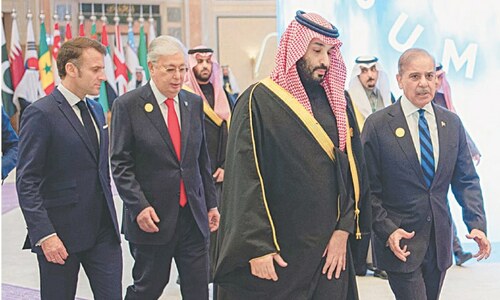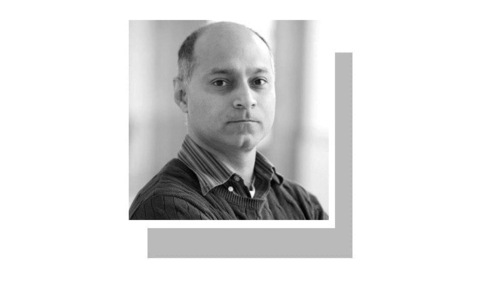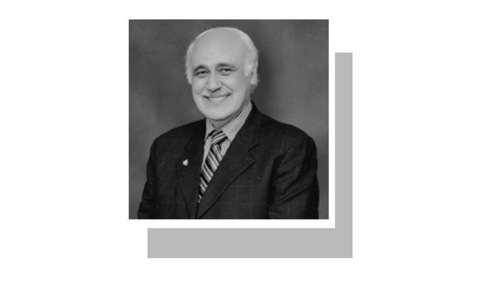ISLAMABAD, Feb 12: Pakistan on Monday termed "great victory" the decision of the World Bank’s neutral expert who vetted three of its four objections on the design of Baglihar Hydroelectric Plant on river Chenab in the Indian occupied Kashmir and asked New Delhi to accept it as a moral obligation.
"This is the moral, legal and political obligation of India to accept the World Bank’s decision on the Baglihar dispute. India got nothing from violating the Indus Water Treaty of 1960," Water and Power Minister Liaquat Ali Jatoi said here at a press conference.
He said Pakistan had gone to the right forum to get the issue resolved with New Delhi as per the spirit of bilateral water treaty. “India has wasted not only its time but will now also face problems when it will demolish or further raise some of its constructions to meet the obligations of an altered design as decided by the neutral expert.”
He said that the decision also had a positive outcome on the issue of Kishanganga Hydropower Project on river Neelum as the Indian cabinet had decided not to allow the construction work before reviewing its design.
“India should respect the decision as it is vital for the peace (process),” he added.
The WB water expert, Prof Raymond Lafitte, who was appointed in May 2005, has accepted three of the four objections Pakistan had raised over the design of the dam.
In 1992, India had shared the project design with Pakistan which expressed reservations over the water storage capacity (pondage), water level above the dam level (free board), level of power intakes and spillway of the dam.
The expert has, however, not supported Pakistan’s viewpoint on the issue of the spillway. But, the minister said various technical and legal aspects were being studied and Pakistan reserved the right to take up the issue again.
"We have the right to take up the spillway issue anytime at an appropriate forum," Mr Jatoi said in response to a question.
Pakistan was of the view that free board for the dam was excessive and provided capability to India for raising artificially the water level in the operating pool above the full pondage level. So, it demanded that the free board should be reduced.
The neutral expert found that India’s calculations on free board were inaccurate. He decided that the crest level of the dam should be kept at the lowest and directed India to reduce the free board from 4.5 metres to three metres -- a 33 per cent reduction.
The second contention of Pakistan was that dam’s intake for the power plant should be raised in accordance with the water treaty. The neutral expert also determined that the location of power intake stipulated by India was not at the highest level as required by the treaty. He decided that the intakes be raised from the present elevation of 818 metres to 821 metres, which means that the power intake should be raised by three metres.
Pakistan demanded a reduction in pondage (water storage capacity) of the dam. The expert also directed India to reduce pondage from 37.722 million cubic metres to 32.56 mcm.
Pakistan was of the view that the location of the spillway gate 27 metres below the Dead Storage Level -- the level below which water cannot be drawn down or depleted except in emergencies -- was unnecessary. It said that either an un-gated spillway or surface-gated spillway could be provided with the bottom of gates at the highest level.
The World Bank expert held that the spillway gates were in conformity with the international practice and were state-of-the-art.
However, Mr Jatoi said, the expert had observed that the Indian design and analysis were incorrect.
"The results of model tests (of spillway) are also not representative of the reality and are illusory," Mr Jatoi said. Pakistan's view was that the expert should have gone strictly by the Indus Water Treaty as any other practice was not relevant, he added.
Since 1992, several meetings between Indus water commissioners over the dispute remained inconclusive. Subsequently, at the request of India, two meetings were held at the level of water secretaries of the two countries. The matter was also raised by President Pervez Musharraf and Prime Minister Shaukat Aziz during their visits to India in 2005.
Pakistan was compelled to seek World Bank’s intervention, as bilateral negotiations were not making any headway, while the construction work on the project continued. India had initially resisted the neutral expert.













































Dear visitor, the comments section is undergoing an overhaul and will return soon.